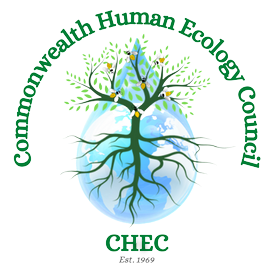An Interview with CHEC’s Chairman and Trustee Mark Robinson

As Chairman of the Board, Mark Robinson is having a crucial part in the work of the Commonwealth Human Ecology Council. With a sincere interest in human ecology and experience of working within several Commonwealth charities, Mark has been a tremendous asset to CHEC since he first became involved in 2006.
Mark started his career working for the United Nations for six years, first in Bangladesh and then in the Secretary-General’s Executive Office in New York. He later moved to the Commonwealth Secretariat again in the Secretary-General’s Office for a further six years. During that time, he spent three months in Zimbabwe from the ceasefire until independence helping to set up the first ever Commonwealth Observer Group. After his time in Zimbabwe, Mark served as an election Observer in Malaysia, South Africa (first one person one vote election), Uganda, Trinidad and Tobago.
Mark has an incredible working history, including being a Member of Parliament for two terms. After leaving Parliament in 1997, he was Executive Director of the Commonwealth Press Union for five years. Since then he has been Executive Chair of the Council for Education in the Commonwealth (CEC) and Chair (UK) of the Commonwealth Consortium for Education (CCfE). He has also served as a trustee of other charities, mainly Commonwealth but not all.
Could you please tell us when you first became involved with CHEC and what attracted you to the organisation?
I first became involved with CHEC in September 2006, after being invited by the Founder, Zena Daysh, to join as a consultant and then as a member of the Governing Board before becoming Chairman in November 2018. I was attracted to the organisation because of its understanding of Human Ecology and because I felt my experience could be useful to CHEC, which is now about to celebrate its 50th anniversary. Its international contacts are impressive and the fact that it is both accredited to the Commonwealth and an NGO in consultative status with ECOSOC gives it a wide range of influence.
What field within human ecology are you particularly interested in?
The role of CHEC that interests me greatly is Climate Change, including its support for the Commonwealth Blue Charter. Human Ecology is about the welfare of the variety of inhabitants of planet Earth, namely humans, animals, insects, fish and other sea creatures, forests and woodlands, all of which must share clean air and water, as well as surviving threats from changing weather conditions causing severe hurricanes, floods and ocean level rises.
What do you believe is CHEC’s biggest achievement?
CHEC has many achievements but it is an educational charity and its primary role must to be to warn of the dangers that planet Earth faces. Education about the effects of climate change and the need for clean air and water is where CHEC can be at its most pro-active and it has never been shy to get messages across to the leaders and opinion formers of Commonwealth countries.
This year, CHEC is focusing on education as a tool towards sustainability. Why do you believe education could be a key towards a sustainable future?
Education is essential if people are to understand the need for a sustainable future. It must be targeted at all ages, as well as governments, industry, population issues and food producers. Healthy living is a part of this and although the agenda is a wide one, one must start with education so the importance of looking after our beautiful planet is fully understood and the need for sustainable projects realised.
In your opinion, what environmental issues should CHEC continue to raise awareness of?
I believe CHEC should continue to raise awareness of the need for clean air, disease free drinkable water, preservation of trees and plants that help keep our atmosphere clear, preservation of sea, animal and insect life and never forget the value of pollinators in their role in the process of nature that helps our fruit and vegetables grow.
